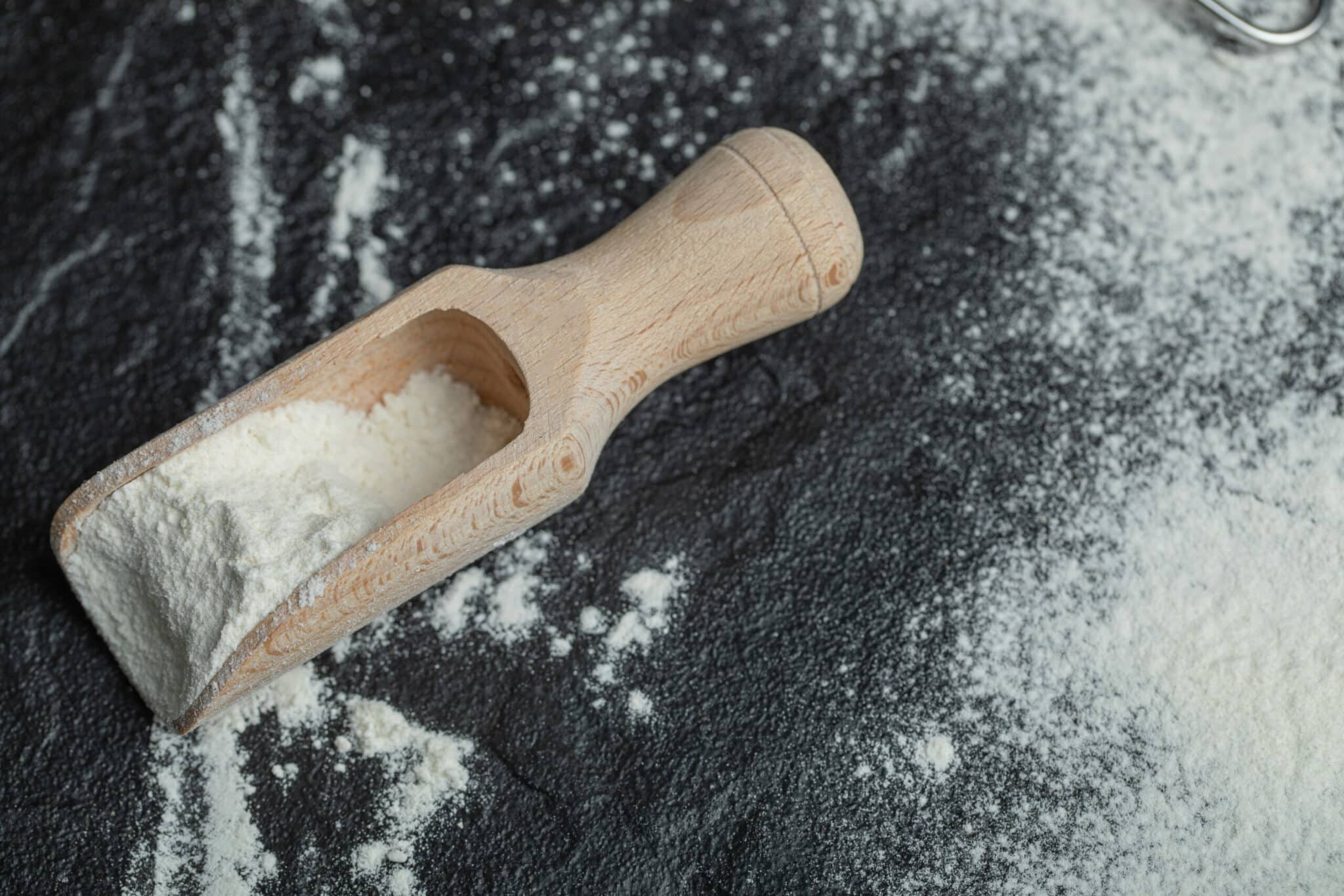Cornstarch is a pantry staple with many uses in the kitchen. It’s also one of those ingredients you might assume you have on hand — until you’re mid-recipe and realize you’re fresh out. Fortunately, there are several good substitutes for cornstarch that can mimic the textural benefits is delivers.
Here are five of those substitutes, plus tips on how to substitute cornstarch properly in different types of recipes.
Substitutes for cornstarch
1. Arrowroot
No products found.
Arrowroot powder is a starchy flour made from the Maranta genus plant’s roots, a plant native to tropical climates. The production of arrow root powder involves drying the seeds and then grinding them. The seeds are dried before being ground to a fine powder.
Arrowroot powder is very similar to cornstarch in texture and thickening power. It is the best substitute for cornstarch when you are thickening clear liquids — it produces a clear gel when mixed with water.
Arrowroot does contain more fiber than cornstarch. It is also gluten-free.
To substitute for cornstarch, use double the amount of arrowroot powder.
2. Wheat flour
No products found.
Wheat flour is wheat ground to powder. It contains fiber, protein, and starch. Cornstarch, on the other hand, is only high in starch. As such, you’ll need to use more wheat flour to achieve the same thickening effect as cornstarch.
Where you require 1 tablespoon of cornstarch, use 2 tablespoons of wheat flour. Mix the wheat flour with a small quantity of cold water to form a paste first. Then add the paste to your recipe.
Wheat flour is not gluten-free. It also has a grittier texture than cornstarch.
3. Potato starch
- Pure Original Ingredients Potato Starch
- Thickener for cooking and baking
- Non GMO & Vegan
- Always pure ingredients with no additives
- Packaged in Utah, USA
Potato starch is made from crushed, dried, and ground potatoes. It is gluten-free. It is also a refined starch, so it’s mostly carbs with little fat or protein. Like cornstarch, potato starch has minimal flavor which makes it very versatile.
You can substitute potato starch for cornstarch 1:1. Specifically, if you need 1 tablespoon cornstarch, use 1 tablespoon of potato starch. Potato starch absorbs water and thickens faster than grain-based substitutes like wheat flour.
4. Rice flour
- White Rice Flour is 100% stone ground from premium white rice.
- Rice flour is a fine powder that contains insoluble fibres that build up the digestive system.
- It’s also extremely easy to digest, much more so than rice or bean flours.
- By using low-carb flours, you can get all the benefits of the ketogenic diet while occasionally indulging in your favorite foods.
- Rice flour is generally used together with a mix of other gluten-free flours to produce similar results.
When rice is ground into a fine powder, you get rice flour. Asian cuisines use this ingredient in desserts or soups. It is gluten-free and suitable for persons with celiac disease. It is a good substitute for cornstarch.
Rice flour serves as a thickener in many recipes. It is colorless when mixed with water, so rice flour is a good thickener for clear liquids.
When substituting for cornstarch, use double the recommend amount of rice flour.
5. Tapioca
- USDA Organic Tapioca Flour / Starch
- Batch Tested and Verified Gluten Free
- Organic, Vegan, Non-GMO, with no other additives
- A Tasteless and Odorless Flour
- Great as a thickener or binder in Gluten Free Recipes!
Tapioca is a gluten-free starch product made from cassava. Cassava is ground to a pulp then dried to obtain the tapioca flour.
For thickening, use 2 tablespoons of tapioca flour for every 1 tablespoon of cornstarch.
Substitutes for cornstarch in sauce
Tapioca and arrowroot powder are good substitutes for cornstarch in sauces and gravies. Use 2 tablespoons of the substitution for every 1 tablespoon of cornstarch in your recipe.
Substitutes for cornstarch in pie
For pie recipes, tapioca is the best substitute for cornstarch. It serves the same purpose as cornstarch in your pie. For best results, substitute 2 tablespoons of Tapioca for 1 tablespoon of cornstarch.
Substitutes for cornstarch in baking
Cornstarch can deliver a crumbly and tender taste in baked goods. When making cookies, cakes, and pie crust, use potato starch or rice flour if you don’t have cornstarch.
Substitutes for cornstarch in pudding
You can make homemade pudding with egg yolks and cornstarch. If you don’t have cornstarch, swap in rice flour for the cornstarch in a 2:1 ratio.
Frequently asked questions
What can I use if I Don’t have cornstarch?
When you don’t have cornstarch, you can swap in wheat flour, tapioca, rice flour, potato starch, or arrowroot powder. These are all good substitutes for cornstarch, particularly for recipes that require thickening.
Can I use baking powder instead of cornstarch?
You cannot use baking powder instead of cornstarch. These two ingredients do not serve the same purpose. While cornstarch functions as a thickening agent, baking powder is used to make cakes fluffy and light.
What is the equivalent of cornstarch?
Flour is the easiest cornstarch substitute, though it’s not the most effective. Tapioca flour, arrowroot powder, and potato starch are closer equivalents.
You can substitute for cornstarch
You can substitute other ingredients for cornstarch. Usually, you’ll need to use more of the substitution than the amount of cornstarch your recipe calls for. Potato starch is the exception, as it can be swapped in for cornstarch in equal amounts.
Last update on 2026-02-18 / Affiliate links / Images from Amazon Product Advertising API

![Naturevibe Botanicals White Rice Flour - 2lbs | Non GMO and Gluten Free (32 ounces) | Used for Cooking | Alternative for Baking | [Packaging may vary]](https://m.media-amazon.com/images/I/51bEwtP58YL._SL1100_._SL160_.jpg)

